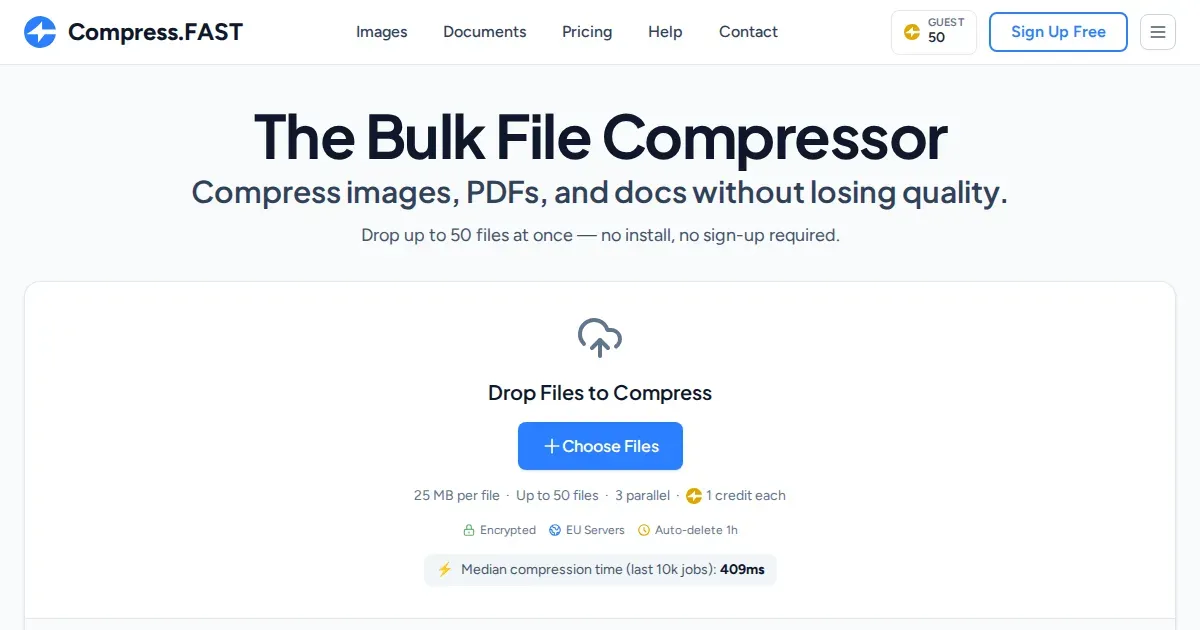Best Product Hunt Alternatives & How to Launch Guide 2025
Complete guide: What is Product Hunt + how to launch successfully. Discover 7 top Product Hunt alternatives and 100+ launch sites at LaunchDirectories.
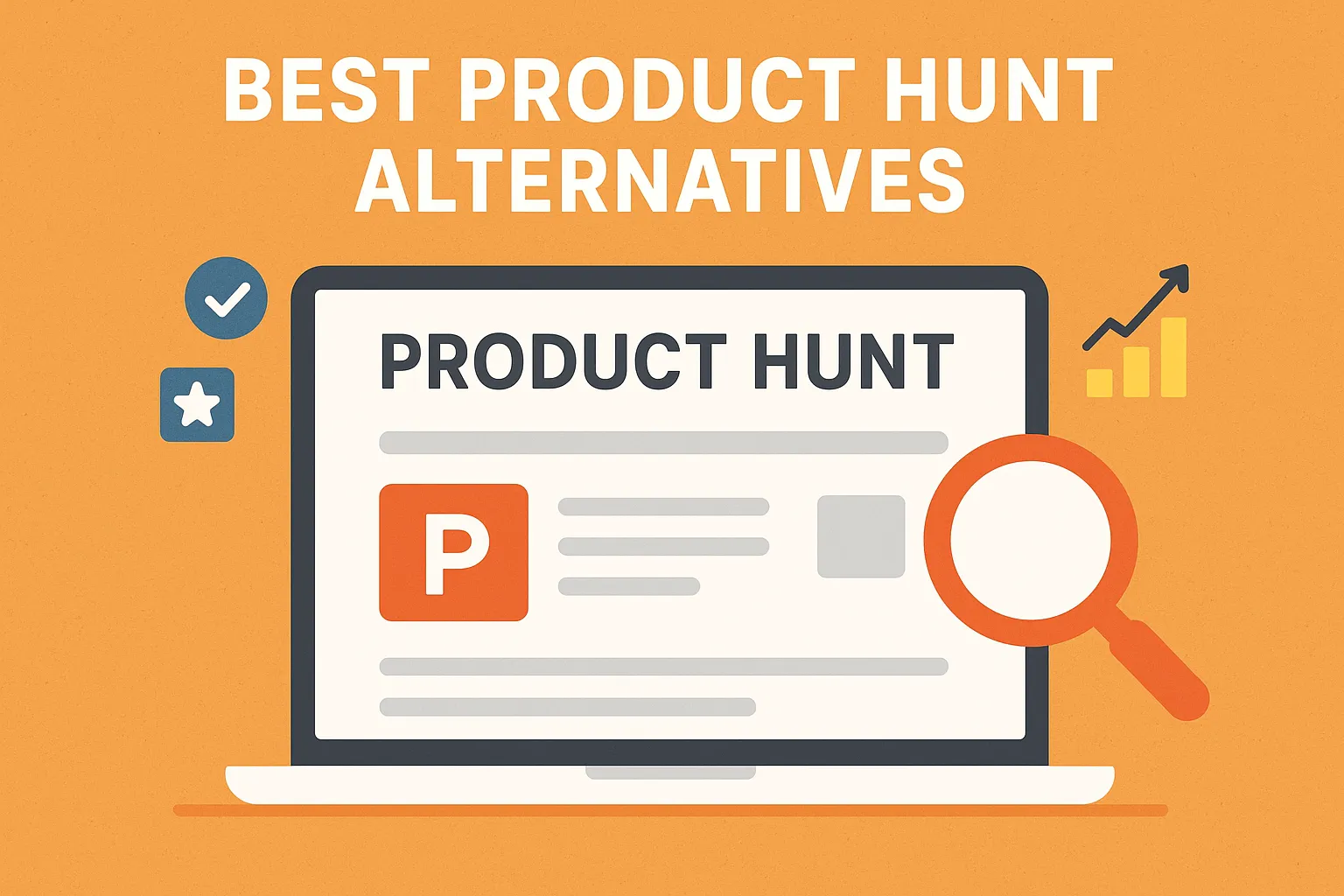
Are you wondering what is Product Hunt and whether it's the right platform for your product launch? Or are you searching for Product Hunt alternatives to diversify your launch strategy? This comprehensive guide covers everything you need to know about Product Hunt, how to launch successfully, and the best alternative platforms to maximize your product's visibility.
What Is Product Hunt?
Product Hunt is a community-driven platform where makers, entrepreneurs, and tech enthusiasts discover and share new products daily. Launched in 2013 by Ryan Hoover, Product Hunt has become the go-to destination for launching tech products, startups, and innovative tools.
How Product Hunt Works
Product Hunt operates on a simple yet powerful model:
- Daily rankings: Products are featured and ranked based on upvotes received within a 24-hour period
- Community voting: Users upvote products they find interesting or valuable
- Comments and discussions: Community members engage with makers through comments
- Collections: Curated lists of products around specific themes or categories
- Maker profiles: Entrepreneurs can showcase their launched products and build credibility
Why Product Hunt Matters for Startups
Product Hunt has helped thousands of startups gain initial traction. Here's why it matters:
Massive exposure: Top products can receive 20,000+ visits in a single day Quality audience: Tech-savvy early adopters actively looking for new solutions Media attention: Journalists and bloggers monitor Product Hunt for stories Investor visibility: VCs and angel investors browse daily for investment opportunities Social proof: Being featured builds credibility and validates your product Backlinks and SEO: A Product Hunt listing provides valuable backlinks
However, Product Hunt has become increasingly competitive, with hundreds of products launching daily. This is why understanding how to launch on Product Hunt properly and exploring Product Hunt alternatives is crucial for success.
How to Launch on Product Hunt: Step-by-Step Guide
Launching on Product Hunt requires careful planning and execution. Follow this comprehensive guide to maximize your chances of success.
Phase 1: Pre-Launch Preparation (2-4 Weeks Before)
1. Build Your Product Hunt Profile Create a complete maker profile with a professional photo, bio, and links to your previous work or social media. An established profile builds trust.
2. Engage with the Community Spend at least 2-3 weeks being active on Product Hunt before launching:
- Upvote interesting products daily
- Leave thoughtful comments
- Follow relevant makers
- Share products you genuinely like
3. Prepare Your Launch Assets
Your product page needs:
- Compelling tagline: One sentence (60 characters max) that clearly explains your product
- Thumbnail image: 240x240px image that stands out in feeds
- Gallery images: 4-6 high-quality screenshots or graphics (1270x760px)
- Product description: Clear, concise explanation of what your product does and who it's for
- First comment: Detailed story about your journey, problems solved, and how the product works
4. Create a Demo Video Products with videos receive 2x more engagement. Keep it under 60 seconds and focus on the core value proposition.
5. Build Your Hunter Network Connect with potential "hunters" (established Product Hunt members who can submit your product). While you can self-post, having a reputable hunter can boost visibility.
Phase 2: Launch Day Strategy
1. Choose the Right Launch Day
- Avoid weekends: Tuesday through Thursday see the highest engagement
- Avoid holidays: Major holidays have lower traffic
- Check the calendar: Avoid days when major products are launching
- Launch at 12:01 AM PST: Get a full 24 hours of voting time
2. Rally Your Community Before launch day, prepare:
- Email list announcement
- Social media posts scheduled
- Team members ready to engage
- Friends and supporters briefed (without directly asking for upvotes)
3. Engage Throughout the Day
- Respond to every comment within minutes
- Provide value in discussions
- Share updates on social media
- Monitor rankings and engagement
- Thank supporters genuinely
4. Drive External Traffic Share your launch on:
- Twitter with relevant hashtags
- LinkedIn posts
- Relevant Slack/Discord communities
- Your blog or website
- Email newsletter
Phase 3: Post-Launch Activities
1. Analyze Your Results Track metrics:
- Total upvotes and ranking
- Comments and engagement quality
- Traffic driven to your website
- Signups or conversions
- Referral sources
2. Maintain Momentum
- Continue responding to comments for days after launch
- Share learnings with your audience
- Thank everyone who supported
- Follow up with interested users
3. Leverage Your Product Hunt Badge Add "Featured on Product Hunt" badge to:
- Your website homepage
- Email signatures
- Social media profiles
- Press kit materials
Common Product Hunt Launch Mistakes to Avoid
- Asking directly for upvotes: Violates Product Hunt guidelines and can get you banned
- Launching too early: Your product should be functional and polished
- Ignoring comments: Engagement is crucial for rankings
- Poor visual assets: First impressions matter tremendously
- No first comment: Always post your maker story immediately
- Launching unprepared: Have your team ready to respond
- Giving up after launch: Long-term engagement matters
Why You Need Product Hunt Alternatives
While Product Hunt is valuable, relying solely on one platform is risky. According to recent analysis of the best Product Hunt alternatives, successful founders are increasingly diversifying their launch strategies across multiple platforms. Here's why exploring Product Hunt alternatives is essential:
1. Competition is fierce: With thousands of products launching monthly, standing out is increasingly difficult
2. Algorithm changes: Platform rules and algorithms can change, affecting your results
3. Audience diversity: Different platforms reach different demographics and niches
4. Sustained momentum: Multiple launches across platforms maintain long-term visibility
5. Risk mitigation: Don't put all your eggs in one basket
6. Niche targeting: Alternative platforms often serve specific communities better
7. Multiple opportunities: You can only launch once on Product Hunt, but alternatives offer repeated exposure
7 Best Product Hunt Alternatives in 2025
1. Indie Hackers
What it is: A community of entrepreneurs building independent, bootstrapped businesses with transparent revenue sharing.
Why it's great:
- Active community of 250,000+ indie makers
- Focus on revenue and growth metrics
- Supportive, non-competitive atmosphere
- Built-in audience of potential customers
- Regular AMAs with successful founders
How to launch: Post in the "Share Your Project" section with honest metrics and your journey. Engage authentically in discussions before promoting your product.
Best for: SaaS products, indie projects, bootstrapped startups, side hustles
Expected results: 500-2,000 visits, high-quality feedback, potential customers
2. Hacker News (Show HN)
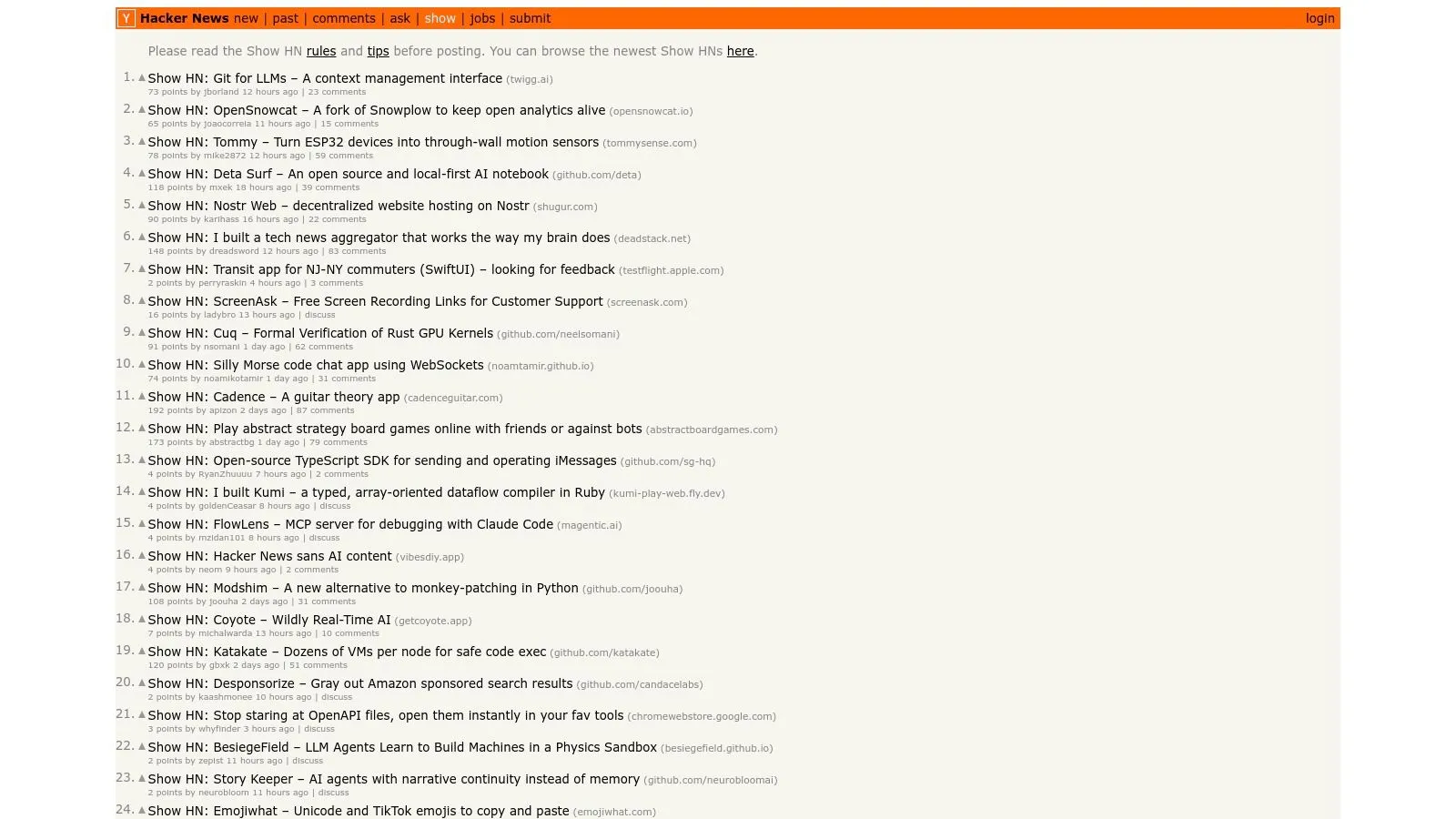
What it is: Y Combinator's tech-focused community with millions of monthly readers including developers, investors, and tech leaders.
Why it's great:
- Massive reach potential (front page = 50,000+ visits)
- Highly technical, quality audience
- Credibility boost from HN exposure
- Media and investor attention
- Viral potential
How to launch: Create a "Show HN" post with format: "Show HN: [Product Name] – [Clear Description]". Post between 8-10 AM EST on weekdays. Be ready to answer technical questions.
Best for: Developer tools, open-source projects, technical innovations, AI products
Expected results: Highly variable – can range from 100 to 100,000+ visits depending on traction
3. Reddit (Multiple Subreddits)
What it is: Network of niche communities with 430 million+ active users across every imaginable topic.
Why it's great:
- Hyper-targeted audience reach
- Multiple launch opportunities
- Free organic exposure
- Authentic, unfiltered feedback
- Community-building potential
Best subreddits for launches:
- r/SideProject (195K members)
- r/startups (1.4M members)
- r/Entrepreneur (3.7M members)
- r/InternetIsBeautiful (17M members)
- r/AlphaandBetausers
- Industry-specific subreddits
How to launch: Read community rules carefully, engage authentically before posting, provide value not just promotion, respond to all comments.
Best for: Any product with a relevant community, especially consumer apps and creative tools
Expected results: 200-5,000 visits per subreddit, highly variable based on community size and reception
4. BetaList
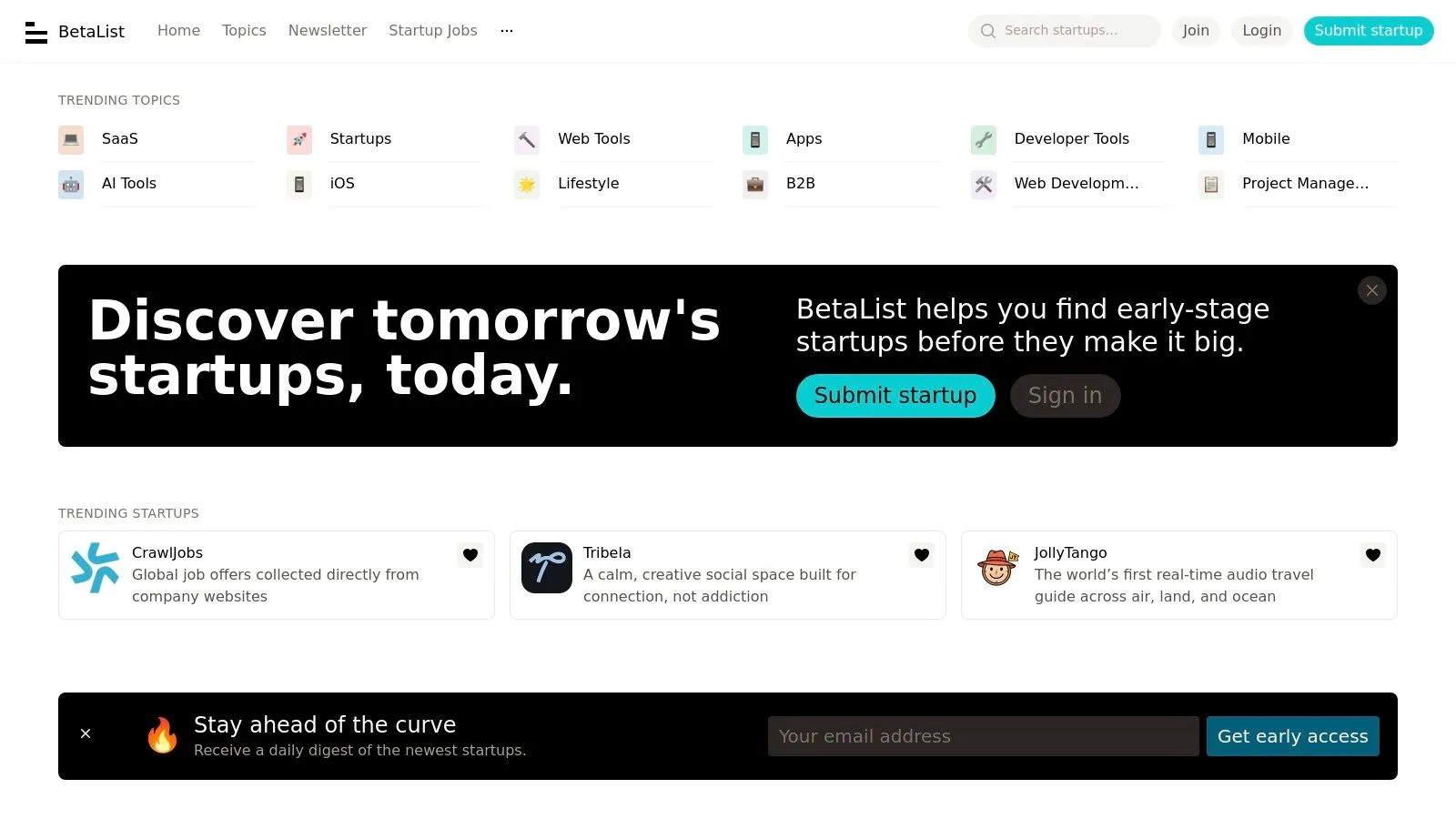
What it is: Platform specifically for showcasing upcoming startups and beta products to early adopters.
Why it's great:
- 50,000+ startup enthusiasts subscribed
- Perfect for pre-launch buzz
- Collects early user signups
- Featured in weekly newsletter
- Long-term listing visibility
How to launch: Submit your startup at least 2-4 weeks before official launch. Choose between free listing or paid featured placement ($129-$299).
Best for: Early-stage startups, beta products, pre-launch buzz building
Expected results: 100-500 signups for free listings, 500-2,000+ for featured
5. Launching Next
What it is: Modern alternative to Product Hunt with clean interface and growing community focused on maker-friendly launches.
Why it's great:
- Less competition than Product Hunt
- Similar upvoting mechanism
- Growing engaged community
- Weekly newsletter features
- Founder-friendly atmosphere
How to launch: Create detailed product page with visuals, submit during weekdays, engage with community throughout launch day.
Best for: Digital products, SaaS, productivity tools, maker projects
Expected results: 300-1,500 visits, quality early adopter feedback
6. Uneed
What it is: Curated directory of the best new products with strict quality standards and editorial selection.
Why it's great:
- Curated approach means less noise
- High-quality audience
- Beautiful, modern design
- Featured in weekly newsletters
- Long-term SEO benefits from listing
How to launch: Submit your product through their form. Products are manually reviewed and selected by curators. Acceptance rate is selective.
Best for: Premium products, well-designed tools, innovative solutions
Expected results: 200-1,000 visits, high conversion rates due to quality audience
7. AppSumo
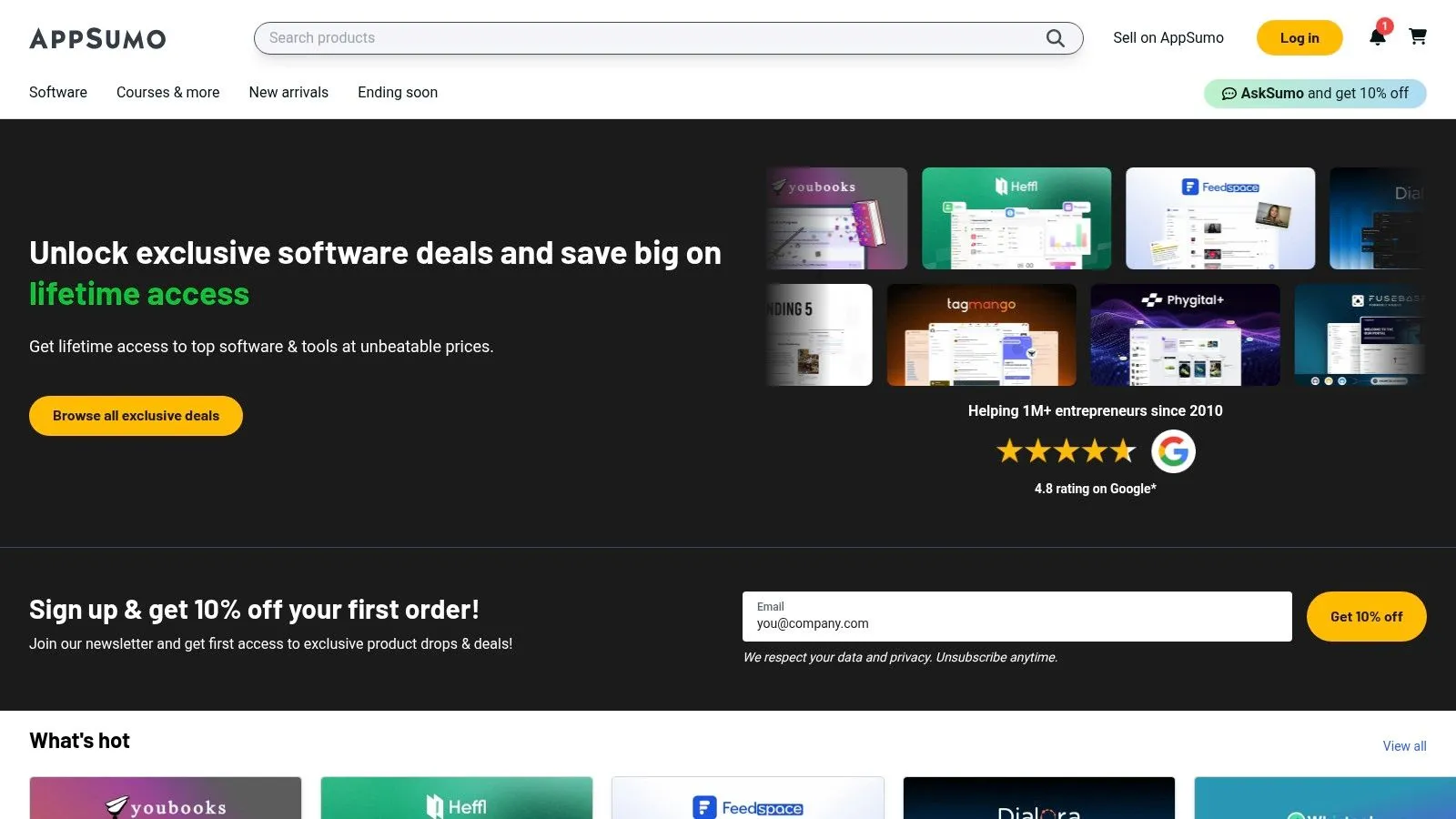
What it is: Marketplace for software deals with a massive audience of entrepreneurs, small business owners, and deal-seekers.
Why it's great:
- 1 million+ email subscribers
- Instant revenue generation potential
- Credibility boost from AppSumo partnership
- Access to quality B2B buyers
- Professional product positioning
- Customer reviews and social proof
How to launch: Apply through AppSumo's partner program. If accepted, they'll help package your product as a lifetime deal. AppSumo takes a percentage of sales but provides massive exposure and instant revenue.
Best for: SaaS products, productivity tools, business software, marketing tools
Expected results: 500-5,000+ customers depending on deal, immediate revenue, valuable customer feedback and reviews
The Ultimate Launch Resource: 100+ Product Hunt Alternatives
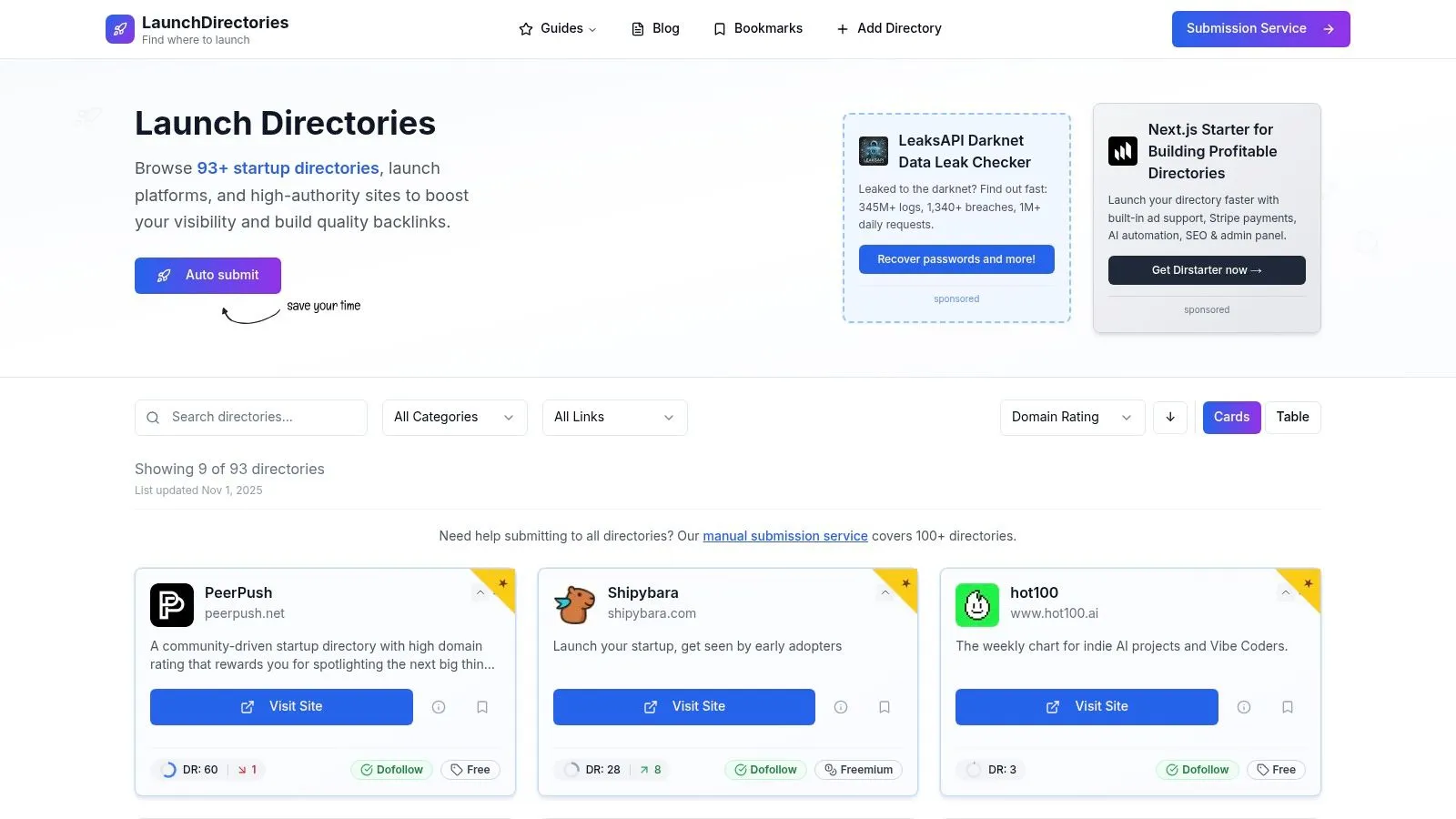
While these seven platforms are excellent starting points, there are over 100+ directories, communities, and platforms where you can launch your product.
LaunchDirectories.com is a comprehensive, curated list of 100+ Product Hunt alternatives covering:
- Startup directories (50+ platforms)
- Tech communities (Reddit, forums, Discord)
- Newsletter sponsorships (reach engaged audiences)
- Niche-specific platforms (by industry and product type)
- International directories (non-English markets)
- Social media communities (Twitter, LinkedIn groups)
- Review sites (G2, Capterra alternatives)
- Press and media (tech blogs, journalists)
This free resource includes: ✅ Direct submission links ✅ Audience size and demographics ✅ Submission requirements ✅ Cost (free vs. paid) ✅ Expected results and traffic potential ✅ Pro tips for each platform
Whether you're launching a SaaS tool, mobile app, Chrome extension, or any digital product, LaunchDirectories.com provides your complete launch roadmap.
Advanced Launch Strategies
Multi-Platform Launch Calendar
Create a staggered launch schedule:
Week 1: Beta testing communities (BetaList, BetaPage, relevant subreddits) Week 2: Niche communities (Indie Hackers, specific forums) Week 3: Major platform launch (Product Hunt) Week 4: Secondary platforms (Launching Next, Uneed) Week 5+: Directory submissions, press outreach
Audience-Specific Targeting
Match platforms to your target audience:
For developers: Hacker News, Dev.to, GitHub, Stack Overflow For designers: Dribbble, Behance, Designer News For marketers: Growth Hackers, Inbound.org, MarketingProfs For entrepreneurs: Indie Hackers, Microconf communities For consumers: Reddit specific subreddits, AppSumo
Content Repurposing Strategy
Maximize each launch by repurposing content:
- Turn launch story into blog post
- Create Twitter thread about journey
- Record video walkthrough for YouTube
- Write LinkedIn article about lessons learned
- Share metrics and results transparently
- Build in public throughout the process
Building Launch Momentum
Create anticipation before launch day:
4 weeks before: Announce upcoming launch, start building email list 3 weeks before: Share behind-the-scenes content 2 weeks before: Offer early access or beta invites 1 week before: Tease features and benefits Launch week: Full promotional push Post-launch: Share results and thank supporters
Measuring Launch Success
Track these key metrics across all platforms:
Traffic metrics:
- Unique visitors
- Page views
- Time on site
- Bounce rate
Engagement metrics:
- Upvotes/likes/shares
- Comments and discussions
- Email signups
- Social media follows
Conversion metrics:
- Free trial signups
- Paid conversions
- Demo requests
- Waitlist additions
Long-term metrics:
- Customer lifetime value from launch traffic
- Backlinks generated
- Media mentions
- SEO improvements
Common Questions About Product Hunt and Alternatives
Can I launch on Product Hunt more than once?
Yes, but with limitations. You can launch major updates, new products, or significant milestones. Wait at least 6 months between launches and ensure substantial changes justify a new launch.
Should I launch on multiple platforms simultaneously?
No. Stagger launches over weeks or months to maintain momentum and learn from each platform. Simultaneous launches spread your team too thin and dilute results.
How much does it cost to launch?
Most platforms are free, including Product Hunt. Some offer paid featured placements ($99-$499) for additional visibility, but organic launches can be highly successful without spending money.
What's more important: Product Hunt or alternatives?
Neither – diversification is key. Use Product Hunt as one component of a comprehensive launch strategy across multiple platforms.
How do I choose which alternatives to use?
Match platforms to your target audience, product type, and stage. Early-stage products suit beta communities, while polished products work better on curated directories.
Conclusion: Your Launch Action Plan
Understanding what is Product Hunt and how to launch on Product Hunt effectively is just the beginning. The most successful product launches in 2025 combine Product Hunt with strategic use of Product Hunt alternatives for maximum impact.
Your 30-Day Launch Roadmap:
Days 1-7: Build Product Hunt profile, engage with community, prepare launch assets Days 8-14: Launch on beta communities (BetaList, BetaPage) to gather feedback Days 15-21: Iterate based on feedback, launch on niche communities (Indie Hackers, relevant subreddits) Days 22-28: Execute Product Hunt launch with full preparation Days 29-30: Launch on secondary platforms, submit to directories
Next 90 days: Work through the comprehensive list at LaunchDirectories.com to maintain momentum and reach every possible audience.
Remember: A successful launch isn't about one perfect platform – it's about consistent execution across multiple channels, authentic community engagement, and providing genuine value to early adopters.
Start with the platforms that best match your product and audience, then systematically expand your reach. With proper preparation and the resources available at LaunchDirectories.com, you'll have everything needed to launch successfully.
Ready to launch? Bookmark LaunchDirectories.com, create your launch checklist, and start building relationships in communities where your target users spend time. Your successful launch journey begins today.
Free Resource: Visit LaunchDirectories.com for the complete list of 100+ Product Hunt alternatives with direct submission links, audience insights, and launch strategies for each platform.


